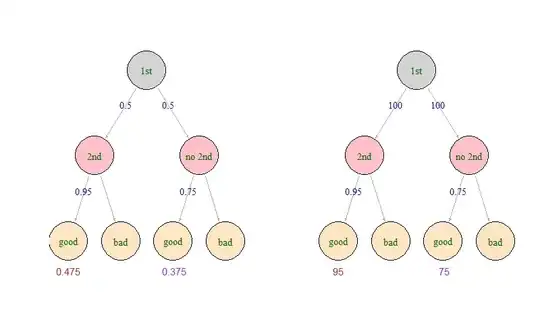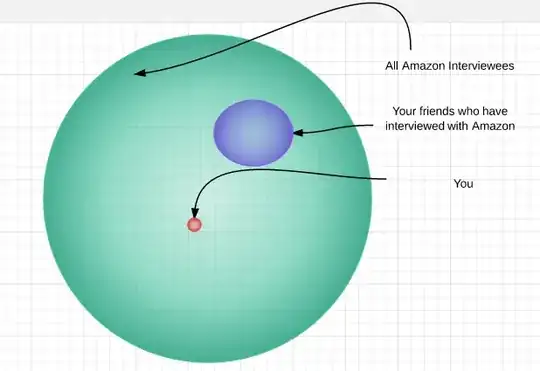I got this question during an interview with Amazon:
- 50% of all people who receive a first interview receive a second interview
- 95% of your friends that got a second interview felt they had a good first interview
- 75% of your friends that DID NOT get a second interview felt they had a good first interview
If you feel that you had a good first interview, what is the probability you will receive a second interview?
Can someone please explain how to solve this? I'm having trouble breaking down the word problem into math (the interview is long over now). I understand there may not be an actual numerical solution, but an explanation of how you would walk through this problem would help.
edit: Well I did get a second interview. If anyone is curious I had gone with an explanation that was a combination of a bunch of the responses below: not enough info, friends not representative sample, etc and just talked through some probabilities. The question left me puzzled at the end though, thanks for all of the responses.

